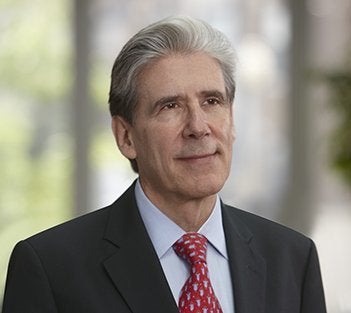[ Spring 2014 ]
In science, we often talk about scalability: Can an idea or program or technical innovation that has solved a problem in a small and controlled setting be amplified and applied to the complex and contradictory realities of human life? Reading this issue of Harvard Public Health, I am struck by the innate scalability of the public health impulse. Fueled by empathy towards those who suffer and intolerance against injustice, we search for ways to sensitize and inform governments and societies, in order to forge policies that reduce the chances of personal calamity. We move easily from small to large to small, from the individual to the institutional and back to the human being.
Our cover story about the health impacts of the Great Recession of 2007–2009 exemplifies this scalability. As HSPH researchers and others describe, the massive wave of joblessness and foreclosures that began in 2008 has exacted an incalculable cost in physical health and psychological well-being in the U.S. and around the world. This is not an abstraction. When stock markets plummet and mortgages go into default, heart disease and chronic illnesses and emotional distress inevitably rise—in some people, irreversibly.
The magazine’s profile of Ashish Jha portrays a physician/hospital safety advocate/prolific blogger who has brilliantly translated the personal into policy, and policy into the personal, drawing on both his observations as an internist and on his experiences as a patient.
Perhaps the most literal and surprising example of public health’s scalability is seen in the story on HSPH’s nanotechnology and nanotoxicology effort, led by Philip Demokritou. At the NanoCenter, our scientists have engineered infinitesimally small nanodroplets of water that may someday be deployed as invisible mists, shielding us against some of the most deadly airborne infectious threats to humankind.
The notion of scalability, of course, is central to the School’s ambition of solving public health challenges “from the genes to the globe.” We are committed to addressing complex problems by integrating levels of analysis and academic disciplines. In public health, it’s our job to see the big in the small, the universal in the particular.
Julio Frenk
Dean of the Faculty and
T & G Angelopoulos Professor of Public Health
and International Development,
Harvard School of Public Health
Photo: Kent Dayton / HSPH
Download a PDF of Dean’s message: Question of scale
